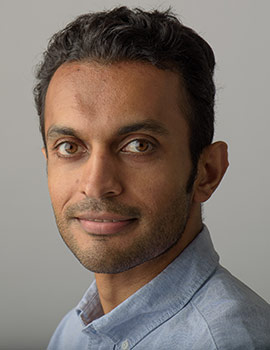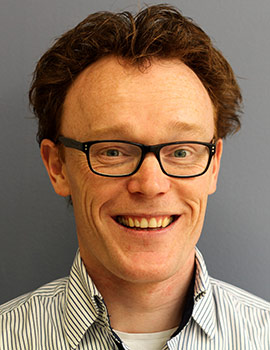We should take a leaf out of our Dutch colleagues’ book and raise the profile of research in general practice in the UK
A group of experienced GPs, nurses, academics, and educationalists from the University of Birmingham and Health Education West Midlands recently visited Maastricht University to explore potential research collaborations and to examine primary care in the Netherlands. A visit to the Department of Family Medicine revealed some important differences between academic training in general practice in the Netherlands and the UK. Firstly, the department housed staff working in both undergraduate and postgraduate training as well as research in primary care, which facilitated a cross fertilisation of practice and ideas.
A striking contrast between Dutch and UK GPs is the number with PhDs. Of all registered GPs in the Netherlands, more than 3% have a PhD compared with less than 1% in the UK.(1) This wasn’t always the case in the Netherlands. The percentage of GP trainees doing a PhD has increased because of a concerted effort to improve the quality of primary care and to strengthen the research capacity of the GP workforce. The national organisation of GP trainees (SBOH) has committed substantial funding towards research projects and schemes, which can be applied to through competitive rounds with the health research funding body ZonMw.(2)
Clinical trainees in the Netherlands can apply for a six year integrated academic GP training programme, which incorporates three years of clinical training with a three year PhD programme.(3-5) Funding for the clinical years comes from the national organisation of GP trainees (SBOH) and the research funding needs to come from one of the eight academic GP departments in the Netherlands. All departments support this arrangement and most national funding bodies allow regular research grants to be used in this way, as the costs are similar to appointing a full time, non-clinical PhD.
At present, more than 8% of GP trainees in the Netherlands are doing a PhD or have already completed one (personal communication from SBOH).(5) SBOH has substantially increased funding in recent years to further support research in general practice, with a budget of nearly 10 million euros for the period 2013-2023.(2)
In the UK, clinical trainees wishing to train in general practice can apply for a four year academic clinical fellowship, which includes three years of clinical training with one year of research training, mostly consisting of a master’s degree in primary care. Only a small minority of these trainees go on to pursue a PhD, which involves applying for a highly competitive doctoral fellowship while working in practice. Unfortunately, UK medical students still see general practice as a career that does not offer an academic career pathway.(6)
Furthermore, academic careers in general practice don’t seem to hold as much prestige and value in the UK as they appear to hold in the Netherlands, where they are viewed as central to improving the quality of primary care. Not surprisingly, primary care based research output in the Netherlands is significantly higher than in the UK—despite the Netherlands having a population almost a quarter of the size of the UK.(7)
Academic training among Dutch GPs is also seen as a means of professional development and professionalisation, and not just a route into academic careers. Indeed, many Dutch GPs with PhDs choose not to pursue an academic career, but instead work full time in practice while working on quality improvement initiatives—such as guideline and service development—and have active roles in developing vocational training in general practice.
UK general practice is under enormous and unprecedented strain from rising patient demand, increasing complexity of need, and inadequate funding. New ways of working are urgently needed to meet this rising tide. Embedding research into general practice in the way that Dutch general practice seems to be achieving may help the NHS meet this challenge and provide the cadre of innovative thinkers that the healthcare system so desperately needs.(8)
Additional research capacity in primary care could be focused on addressing our understanding of, and developing evidence based solutions to, the pressures currently experienced in primary care. These pressures and solutions include the increasing complexity of managing patients with multimorbidity, evaluating alternative models of service delivery, improving shared decision making, and reducing overtreatment.
Integrated academic training programmes in general practice that include a fully funded PhD would be worth considering and piloting in the UK. Raising the profile of research in general practice in the UK will take some time to achieve, but perhaps we can take a leaf out of our Dutch colleagues’ book and make credible efforts to examine their model and learn from their efforts.
 Shamil Haroon, academic clinical lecturer, Institute of Applied Health Research, University of Birmingham.
Shamil Haroon, academic clinical lecturer, Institute of Applied Health Research, University of Birmingham.
Competing interests: None declared.
 Jochen WL Cals, assistant professor, CAPHRI School for Public Health and Primary Care, Department of Family Medicine, Maastricht University.
Jochen WL Cals, assistant professor, CAPHRI School for Public Health and Primary Care, Department of Family Medicine, Maastricht University.
Competing interests: None declared.
Acknowledgements: We would like to thank Yvonne Sawbridge and Kerry Allen at the Health Services Management Centre, University of Birmingham, for sharing their views and giving advice on this article.
References
- Campbell J, Hobbs FD, Irish B, Nicholson S, Pringle M, Reeve J, et al. UK academic general practice and primary care. BMJ 2015;351:h4164. [Available from: http://www.bmj.com/content/351/bmj.h4164]
- General Practice in 2017 Den Haag: ZonMw; 2017 [Available from: https://www.zonmw.nl/nl/subsidies/openstaande-subsidieoproepen/detail/item/huisartsgeneeskunde-2017/.
- Olde Hartman TC, Poels PJ, Licht-Strunk E, van Weel C. Combining vocational and research training. Aust Fam Physician. 2008;37(6):486-8. [Available from: https://www.ncbi.nlm.nih.gov/pubmed/18523707]
- Aiotho network Utrecht: Lovah – Aspiring National Organization of General Practitioners; 2014 [Available from: http://www.lovah.nl/werkgroepen-en-activiteiten/wetenschap/aiotho-netwerk.
- The aiothotraject, 15 years after the start: Huisarts & Wetenschap; 2014 [Available from: https://www.henw.org/archief/printartikel/id5700-het-aiothotraject-15-jaar-na-de-start.html.
- Health Education England. By choice – not by chance: Supporting medical students towards future careers in general practice. 2016. [Available from: https://www.hee.nhs.uk/sites/default/files/documents/By%20choice%20not%20by%20chance%20web%20FINAL.pdf]
- Glanville J, Kendrick T, McNally R, Campbell J, Hobbs FD. Research output on primary care in Australia, Canada, Germany, the Netherlands, the United Kingdom, and the United States: bibliometric analysis. BMJ 2011;342:d1028. [Available from http://www.bmj.com/content/342/bmj.d1028]
- Primary Care Workforce Commission. The future of primary care: Creating teams for tomorrow. 2015. [Available from https://www.hee.nhs.uk/sites/default/files/documents/WES_The-future-of-primary-care.pdf]
